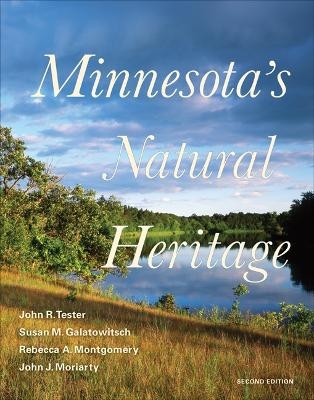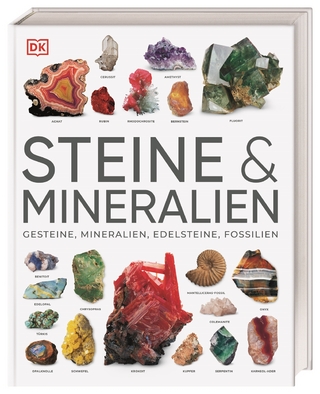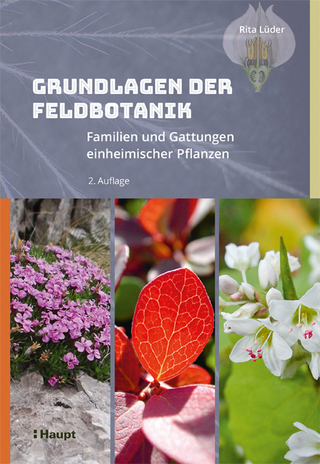
Minnesota's Natural Heritage
University of Minnesota Press (Verlag)
978-1-5179-0357-2 (ISBN)
The story of Minnesota’s natural landscape, reaching back to the time of the glaciers, covers at least 12,000 years. Yet even against that vast expanse, recent decades have significantly transformed the natural world that is Minnesota’s greatest resource. In the twenty-five years since the first publication of Minnesota’s Natural Heritage, the definitive volume on the state’s natural history and ecology, human activity and climate change have profoundly altered the major ecosystems that give our state its rich and varied character.
The second edition of Minnesota’s Natural Heritage introduces readers to these ecosystems—the lakes and rivers, forests and prairies, farmlands and wetlands—and explains how they have come to be, how they function, and how they have changed so rapidly and dramatically in recent years. Full-color illustrations document the state’s striking natural beauty in all its vigor and fragility, while maps, drawings, diagrams, and graphs amplify points of historical, ecological, and geological interest.
The most complete treatment of Minnesota’s natural environment, compiled and accessibly written by scientists whose collective knowledge spans the book’s expansive content, Minnesota’s Natural Heritage is the one indispensable companion for both visitors and inhabitants, as enlightening to page through as it is valuable to study.
John R. Tester (1929–2019) was emeritus professor in the Department of Ecology, Evolution, and Behavior at the University of Minnesota. He was a lifelong scientist and naturalist who witnessed many changes to Minnesota’s ecosystems. He published numerous articles and research papers on wildlife and ecosystem ecology. Susan M. Galatowitsch is professor and head of the Department of Fisheries, Wildlife, and Conservation Biology at the University of Minnesota. She is author of Ecological Restoration and Restoring Prairie Wetlands: An Ecological Approach. She and her research team focus on wetland and grassland restoration and invasive species management. Rebecca A. Montgomery is a professor in the Department of Forest Resources at the University of Minnesota. She started her career as a tropical biologist before returning to Minnesota. Her research focuses on forest ecology and tree biology. John J. Moriarty is senior manager of wildlife for Three Rivers Park District. He was a natural resources manager for Ramsey County Parks and Hennepin Parks, as well as a community faculty member at Metropolitan State University. He has written five books on Minnesota natural history, including Amphibians and Reptiles in Minnesota (Minnesota, 2014) and A Field Guide to the Natural World of the Twin Cities (Minnesota, 2018).
Contents
Preface to the Second Edition
Preface to the First Edition
Acknowledgments
1. The Landscape
Geologic History
Changing Landscapes Since Glaciation
The Present Landscape
2. Climate and Weather
Solar Radiation
Temperature
Precipitation
Clouds
Wind
Observed Climate Change
3. Principles of Ecology
Environment
Ecosystem Structure and Function
Populations and Communities
4. Deciduous Forest
Deciduous Forest Ecology
Animals and Community Interactions
Forest Management and Conservation in Minnesota
5. Northern Coniferous Forest
Northern Coniferous Forest Ecology
Animals and Community Interactions
Present Status of the Northern Coniferous Forest
6. Tallgrass Prairie
Prairie Forest Border
Tallgrass Prairie Ecology
Animals and Community Interactions
Present Status of the Tallgrass Prairie
7. Wetlands
Prairie Wetlands
Animals and Community Interactions in Prairie Wetlands
Peatlands
Animals and Community Interactions in Peatlands
Other Wetlands Occurring in Minnesota
Present Status of Wetlands
8. Lakes
Formation and Distribution
Physical and Chemical Characteristics
Lake Communities
Ecosystem Function
Animals and Community Interactions
Minnesota’s Lakes
Present Status of Minnesota’s Lakes
9. Streams and Rivers
Origins of Streams and Rivers
Physical and Chemical Characteristics
Stream Communities
Ecosystem Function
River Continuum Concept
Animals and Community Interactions
Minnesota’s Streams and Rivers
Present Status of Minnesota’s Streams and Rivers
10. The Future
Stemming Habitat Loss
Feeding a Growing Human Population Sustainably
Adapting to a Changing Climate
Reversing the Spread of Invasive Species
Reducing Damaging Chemicals in the Environment
Recovering Threatened Species Populations
Planning Statewide Conservation Action
Restoring Ecosystems
A Perspective to Live With
Appendixes
A. Counties and Major Rivers in Minnesota
B. Trees and Shrubs Found in Minnesota
C. Common Herbs Found in Minnesota
D. Mammals Found in Minnesota
E. Birds Breeding in Minnesota
F. Amphibians and Reptiles Found in Minnesota
G. Fishes Found in Minnesota
H. Metric Equivalents of English Weights and Measures
Literature Cited
Permissions
Index
| Erscheinungsdatum | 15.01.2021 |
|---|---|
| Zusatzinfo | 14 Tables, 254 Color Plates |
| Verlagsort | Minnesota |
| Sprache | englisch |
| Maße | 210 x 267 mm |
| Themenwelt | Sachbuch/Ratgeber ► Natur / Technik ► Natur / Ökologie |
| Geisteswissenschaften ► Geschichte ► Regional- / Ländergeschichte | |
| ISBN-10 | 1-5179-0357-2 / 1517903572 |
| ISBN-13 | 978-1-5179-0357-2 / 9781517903572 |
| Zustand | Neuware |
| Haben Sie eine Frage zum Produkt? |
aus dem Bereich


